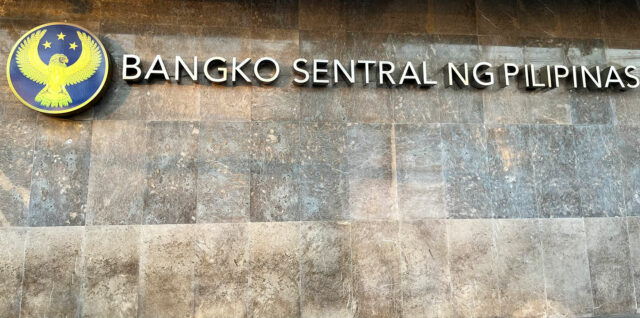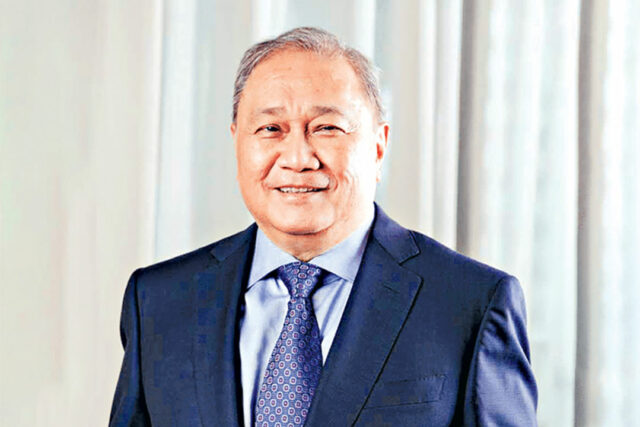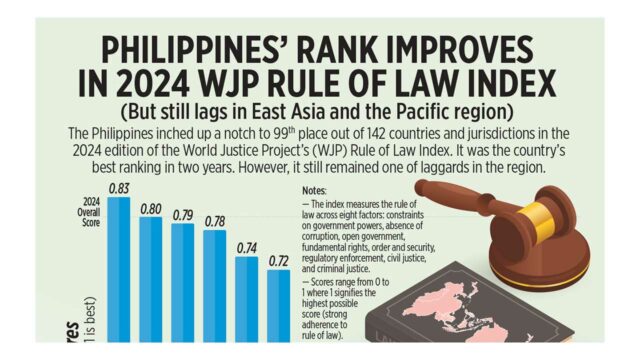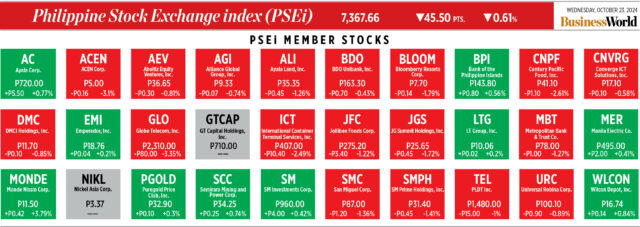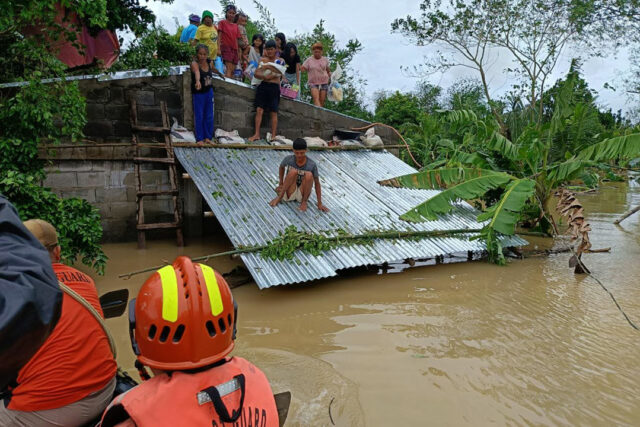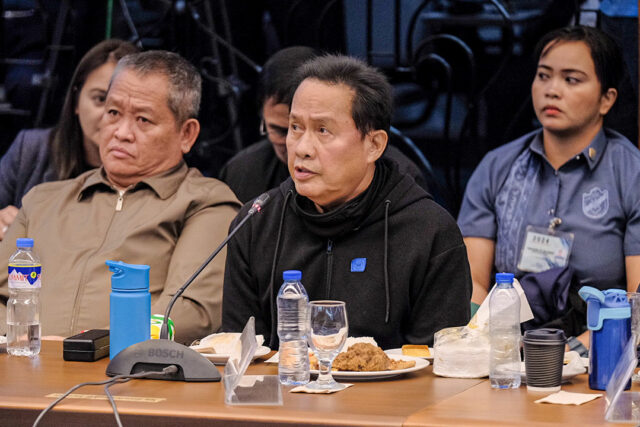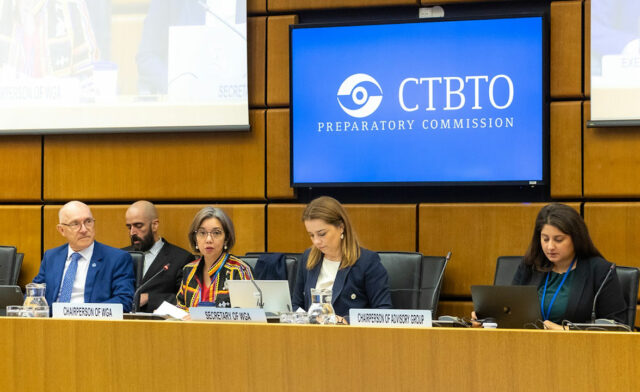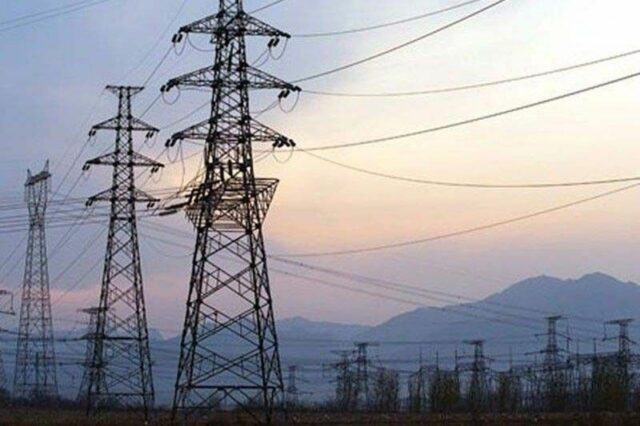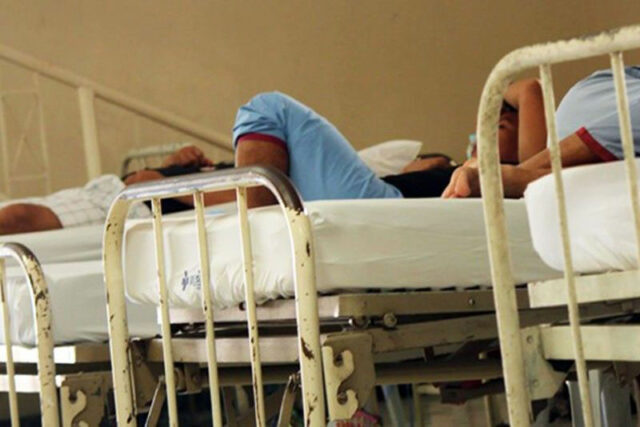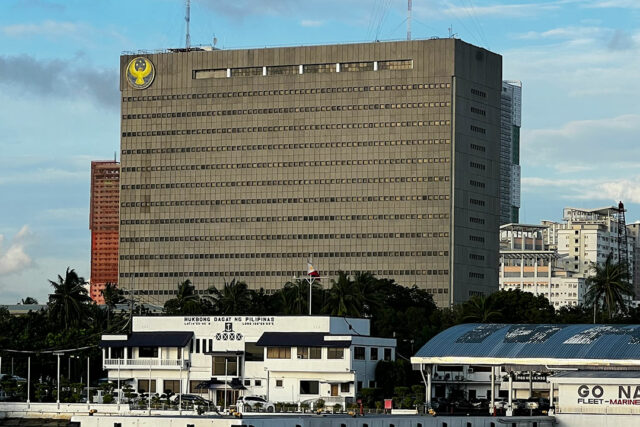By Kyle Aristophere T. Atienza, Reporter
A TROPICAL STORM dubbed by a green group as the third highly devastating weather event this year has caused massive flooding in the Bicol region and has led to the suspension of classes and government work in Luzon, with the number of affected people nationwide hitting over 300,000 as of early Wednesday.
Trami, locally called Kristine, intensified into a severe tropical storm as it made its way toward Isabela province, Philippine Atmospheric, Geophysical and Astronomical Services Administration (PAGASA) said in a 5 p.m. report.
The storm last spotted 175 kilometers east of Echague, Isabela province, had maximum sustained winds of 95 kilometers per hour (kph) and gustiness of up to 115 kph, it said.
Trami was expected to make landfall over Isabela province on Wednesday evening or Thursday.
In an 8 a.m. report on Wednesday, the National Disaster Risk Reduction and Management Council (NDRRMC) said flooded areas in the country had hit 88. Of which, 54 were in Bicol region, while 26 were in Mimaropa.
Over 382,000 people, or 77,910 families, had been affected by Trami, most of whom were in Bicol region with 77,335, it added.
Three people have so far been reported as missing, according to the agency, which has yet to report deaths.
‘HIGHLY DEVASTATING’
“This is the third highly devastating weather event to batter the country this year. Filipinos need action, not lip service,” Greenpeace Philippines said in a statement on Wednesday.
“Tropical storm Kristine is yet another reason why President (Ferdinand R.) Marcos, Jr. should turn words into action on climate justice,” it said, calling on the Philippine government, which now hosts the United Nations Loss and Damage Fund Board, to “lead the global call for securing the trillions of dollars needed to address loss and damage.”
Greenpeace said the situation is “already dire,” lamenting that “determined climate action should have been done a long time ago.”
“To start with, President Marcos Jr. should demand that climate polluters pay for the harm and destruction their products cause.”
Mr. Marcos, in a situation briefing on Wednesday morning after cancelling his scheduled events for the day, noted that Bicol, which accounted for 2.9% of Philippine economic output last year, was the hardest-hit region in the country as Trami dumped record-breaking rains.
A state of calamity was already declared in Albay, the region’s second-largest economy, and Magpet town in the southern province of Cotabato.
In a video shared by state-run Philippine News Agency, Albay Public Safety Emergency Management Office acting chief Dante B. Baclao said 17,095 people, or 4,948 families, from several areas in the province were in evacuation center.
The number of evacuated residents was expected to increase as the office was in the process of consolidating reports from localities, he said.
The Trade department already issued a price freeze on basic goods in areas under a state of calamity.
“We are doing everything we can to get assistance prepositioned. That’s always the key,” Mr. Marcos said. “Get the people evacuated properly, get our goods and equipment prepositioned as close as possible without them having the risk of damage.”
He said the government was facing “budgeting issues” since the country had experienced “many typhoons” in previous months. “But that’s not something that we should worry about because we will be able to remedy that.”
The Department of Social Welfare and Development said it had already released P2.3 million in aid to local government units hit by the storm, citing the provinces of Albay, Camarines Sur, and Sorsogon in Bicol; Bacolod in Western Visayas; and North Cotabato in Soccsksargen.
As of Wednesday morning, 2.07 million boxes of family food packs were available nationwide, it said.
EDCA SITES ACTIVATED
Mr. Marcos said sites under Philippines’ 2014 Enhanced Defense Cooperation Agreement (EDCA) with the United States would be used for the country’s rescue and relief efforts.
Military chief Romeo S. Brawner, Jr. said the US was ready to send aircraft to EDCA sites for relief and rescue operations.
“The Armed Forces of the Philippines is also continuing to monitor the situation so that we will be able to activate the EDCA sites, which were put there specifically for this purpose,” Mr. Marcos told reporters on the sidelines of the briefing, noting that the Armed Forces of the Philippines was ready to deploy airlift as many roads remained impassable.
The Philippine Ports Authority said in a report that 5,987 passengers, 2,260 of whom were in Bicol region and 2,161 were in Eastern Leyte, had been stranded as of 12 noon on Wednesday.
Three ports had reported damage including the Port of Bulan in Sorsogon, Port of Pio Duran in Albay, and Baseport in Legazpi.
The NDRRMC said 93 roads — 89 of which were in Bicol region — and 10 bridges — all of which were in the same region — were impassable.
The National Electrification Administration said four out of 63 electric cooperatives in the country had experienced “total power interruption,” while 43 remained “in normal operation.” It said it had been monitoring 63 electric cooperatives in 39 provinces due to the storm.
RETHINK INFRASTRUCTURE
Amid the changing climate, which causes conditions that contribute to heavier rainfall and stronger typhoons like Trami, the Climate Change Commission urged cities and public workers agencies “to rethink infrastructure development.”
It cited the need to use materials that allow for better water absorption and reduce risk of flooding such as permeable bricks, which it said, “can be effective for parking areas and secondary roads.”
It also called for land use plans at the local levels, green infrastructure that can absorb rainwater and reduce heat such as parks and green roofs, and updated drainage systems.
A 2024 Green Economy Report for Southeast Asia led by Bain & Co. said the Philippines saw a 57% increase in “green” investments to $1.46 billion in 2023, but still falls short of the over $16 billion in required capital investments needed for its green transition.
A World Weather Attribution study on Supertyphoon Gaemi, which caused massive flooding in Metro Manila and nearby provinces, and killed dozens, said human-induced climate change was enhancing conditions conducive to typhoons.
It said the Philippines should not be the one “footing the bill for the destruction, for improving disaster response systems, for upgrading infrastructure, and for rehabilitating climate-impacted communities.”
“Oil and gas companies, those most responsible for the climate crisis, should be the ones paying for loss and damage,” Greenpeace said, as it pressed the passage of the Climate Accountability (CLIMA) Bill, which seeks to create mechanisms for accountability and reparations from companies.
Mr. Marcos has been citing his country’s vulnerability to climate change, saying in September that climate change’s damage to the national economy could reach up to 7.6% of the gross domestic product by 2030.
“Once passed, the CLIMA Law will help raise the ambition of climate policy, not just in the Philippines but also globally, as a national framework for loss and damage that lays down stringent corporate transition regulations,” Greenpeace said. — with Adrian H. Halili

